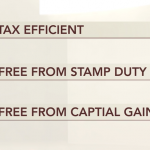Bitcoin, love it or hate it, think it’s a fraud or think it’s fantastic, think it’s going up, or think it’s going down it’s here to stay. And that means it’s here to be traded.
If you are new to trading bitcoin and don’t have a broker you can view our the best cryptocurrency exchanges and platforms for buying Bitcoin here
I have updated this article for 2022 because when I originally wrote it in 2017, UK investors were still allowed to trade Bitcoin through spread betting, CFDs and futures. Which in my view was a good thing because even though these were leveraged products at least the brokers were regulated by the FCA and if they went bust your funds (up to a certain point) were covered by the FSCS. Also, your risk was with the broker if there was a hacking. You were speculating on Bitcoin OTC (over the counter) with the broker so if the broker was hacked and their Bitcoin stolen, you would be covered as the broker would have to make good. Now, however, if you buy Bitcoin through a cryptocurrency exchange and it either gets nicked or the exchange goes bust, you end up with nothing.
But first, if you want a bit of insight into Bitcoin and it’s prospects, Clem Chambers, CEO of ADVFN has published a book called Trading Cryptocurrencies: A Beginner’s Guide: Bitcoin, Ethereum, Litecoin which is probably worth a read. Or, if you want a scientific perspective rather than speculators, read the New Scientists, The End of Money
Three different ways to trade Bitcoin
If you’re now caught up, here are the main advantages and disadvantages of trading Bitcoin three different ways.
Before we continue though, please note that Bitcoin is an extremely high-risk type of investment, if you can even call it an investment. There is a high chance you will lose all your money, so only invest money in Bitcoin if you cannot afford to lose it.
Bitcoin Exchanges:
Bitcoin exchanges are online platforms where you can buy and sell Bitcoins from and to other users. Users upload their Bitcoins, or fund their account and buy Bitcoins. Once you have bought Bitcoins, the Bitcoins stay on the Bitcoin exchange for you to sell or hold. Some don’t let you withdraw your Bitcoins, whilst others will let you deposit them into a Bitcoin wallet. You can compare Cryptocurrency Exchanges here to see which ones offer which services.
The main advantage of a Bitcoin exchange is that they are quite simple to use. You just put money and trade, there is no complicated code, software or specific cryptocurrency required.
The main disadvantage is that you don’t actually own the Bitcoin, you just have a Bitcoin position. They can also be quite expensive. Bitcoin exchanges are also unregulated so you have no protection if they go bankrupt. There have also been cases of theft and fraud, which could result in you losing all your money and Bitcoin.
Bitcoin Wallets:
Bitcoin Wallets are digital safes where you store your Bitcoin and are used for sending and receiving Bitcoin across the internet. The main advantage of them is that you are in control of them, rather than an exchange. You also do not have to pay exchange transaction fees.
The downside of course, is that as they are physical things, if you lose them (as some have) you lose your Bitcoins. They are also are quite complex and more suited to experienced cryptocurrency speculators.
Professional Trading Accounts:
Professional trading accounts let you trade Bitcoin as CFDs or through financial spread bets. The main advantage of these is that you are trading with an FCA-regulated provider, you can also trade with leverage to maximise your exposure, plus, and this is a big advantage, you can speculate on the price of Bitcoin going down, as well as up by shorting Bitcoin.
- Related guide: How does shorting shares work?
The disadvantage of these is that leverage means your losses are maximised and you do not get the full protection of the FCA as you are classified as a professional investor. Also, in order to open a professional trading account you need to be able to answer yes to two of the below questions:
- Have you traded leverage derivatives in significant sizes over the last four quarters?
- Do you have a financial instrument portfolio
exceeding €500k? - Have you worked in the financial sector, in a professional position requiring knowledge of derivatives trading, for at least a year?
Note: professional trading accounts are for sophisticated investors only, but if you are interested in them you can compare the best professional trading accounts here.

Richard is the founder of the Good Money Guide (formerly Good Broker Guide), one of the original investment comparison sites established in 2015. With a career spanning two decades as a broker, he brings extensive expertise and knowledge to the financial landscape.
Having worked as a broker at Investors Intelligence and a multi-asset derivatives broker at MF Global (Man Financial), Richard has acquired substantial experience in the industry. His career began as a private client stockbroker at Walker Crips and Phillip Securities (now King and Shaxson), following internships on the NYMEX oil trading floor in New York and London IPE in 2001 and 2000.
Richard’s contributions and expertise have been recognized by respected publications such as The Sunday Times, BusinessInsider, Yahoo Finance, BusinessNews.org.uk, Master Investor, Wealth Briefing, iNews, and The FT, among many others.
Under Richard’s leadership, the Good Money Guide has evolved into a valuable destination for comprehensive information and expert guidance, specialising in trading, investment, and currency exchange. His commitment to delivering high-quality insights has solidified the Good Money Guide’s standing as a well-respected resource for both customers and industry colleagues.
You can contact Richard at richard@goodmoneyguide.com



